Job Details
A three-year PhD fellowship is available at the Faculty of Biosciences and Aquaculture, Nord University (Bodø, Norway), connected to the ‘Algal and Microbial Biotechnology’ division.
FBA invites applications from outstanding candidates for a three-year PhD fellowship with the broader goal to enhance kelp immunity and resistance to biofouling through defense elicitation.
Integrated in an international team of collaborators (CCMAR PT, CNRS FR, GEOMAR DE & NORD NO), combining expertise in kelp cultivation, defense elicitation, the kelp microbiome, ‘omics and bioinformatics skills and resources, this project aims to characterize the potential and value of priming kelp immunity to enhance resistance to bio-fouling and pathogens, and to characterize a mechanistic explanation at the molecular level.
The candidate will be located in Norway, Bodø and have at least one research stay at the Roscoff Research station in France.
The KELP-SHIELD project ‘Sugar Kelp Priming for Strengthening Host Immunity, Enhancing Long-term Defense’ focuses on immune priming, a method to enhance biotic stress defense readiness. This method is well-established in crops but novel in macroalgae. Immune elicitors (pathogen-derived molecules or environmental cues) trigger immune responses. While oligoguluronates enhance kelp defenses, they may disrupt biofilms protecting against epibionts, highlighting trade-offs between immune elicitation, microbiome health, and biofouling resistance. Their effectiveness across kelp life stages remains unstudied. DNA methylation regulates immune priming in plants, enabling epigenetic memory of pathogen infections and potential transgenrational immunity. Its role in the kelp S. latissima remains unknown.
The proposed research links molecular mechanisms, aquaculture applications, and microbial ecology to advance understanding of kelp immune mechanisms and their role in sustainable aquaculture. This study will establish a mechanistic basis for immune elicitor integration into kelp farming.
Key questions
1) How do different S. latissima strains vary in immune responses to Eurychasma dicksonii and oligoalginates, and is there a host-pathogen cross-talk similar to plant pathosystems?
2) Can immune elicitation in gametophytes enhance pathogen resistance in sporophytes, and how do these responses depend on DNA methylation?
3) How does immune priming influence microbiome composition, herbivore resistance, and biofouling in S. latissima?
Requirements
Qualification requirements
- MSc degree or equivalent in a relevant discipline such as genetics, epigenetics, phycology, and biosciences.
- Grade average of B or better both for the programme in total and the master’s thesis
- Drylab skills in molecular biology including DNA extraction, Qubit quantification
- Experience with kelp sampling and cultivation methods
- Experience with stress experiments of macroalgae both at the gametophyte- and sporophyte stage
- Thesis background preferrably in plants or algae
- Strong computational skills (using R, modelling software, working on a remote linux-based server) and experience in analyzing Next Generation Sequencing data, including PCA, outlier analysis, GO-term enrichment analysis.
- Ability to work independent and in teams.
- High motivation and adherence to time lines.
- Demonstration of strong interest in and drive to work on the topic
- The grades at the qualifying MSc examination needs to be B or better (ECTS scale from A-E) to be admitted to the PhD program.
- See admission requirements: PhD in Biosciences
- It is assumed that the person who is hired is admitted to the faculty’s doctoral program Final project outline with plan for the doctoral work must be approved and agreed upon no later than 3 months after accession. Termination may be considered if admission to the doctoral program is not available within this deadline, due to lack of annual reporting of progress and/or serious failure in progress and in duty work. For admission requirements and regulations, see our web page
- For the position, good English skills are required both written and oral. The thesis can be written in English or Norwegian (or a Scandinavian language)
It is an advantage that the applicant masters Norwegian (or a Scandinavian language) both written and oral
Desirable qualifications:
- Experience in microbiome work
- Background in Phycology
- Experience in Next Generation Sequencing
- Papers published in peer-reviewed journals or presented at (inter)national conferences
Candidates who already have a PhD degree will not be considered for the position.
Contact Information
Nord Universityhttps://www.jobbnorge.no/en/available-jobs/job/280948/phd-position-sugar-kelp-priming-for-strengthening-host-immunity
Further information about the position can be obtained by contacting :
- Associate Professor Alexander Jüterbock, alexander.juterbock@nord.no , Phone: +47 75 51 78 34
Post Date: 6/23/2025 12:25:29 PM
Closing Date: 7/13/2025 12:00:00 AM

